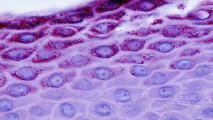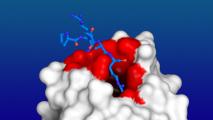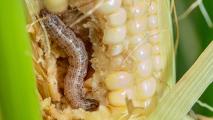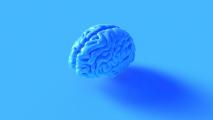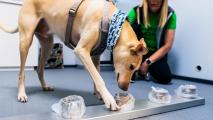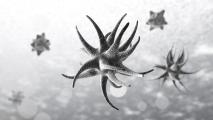
Biotech
Human history has been all but defined by death and disease, plague and pandemic. Advancements in 20th century medicine changed all of that. Now advancements in 21st century medicine promise to go even further. Could we bring about an end to disease? Reverse aging? Give hearing to the deaf and sight to the blind? The answer may be yes. And soon.
More
Babies of the future could be made from skin cells
A potential fertility treatment involves taking skin cells and reverse engineering them into eggs and sperm.
Comparing COVID-19 vaccines just got way easier
A newly formed network of labs will make it easier to compare COVID-19 vaccines by testing them all in exactly the same way, using the exact same supplies.
MDMA therapy and the promise of psychedelics
Despite years of work with a “stellar” therapist, Charlotte needed more. She turned to MDMA therapy.
Pain relief from coronavirus may be helping it spread
Rather than feeling sick, some people may be getting pain relief from coronavirus — a discovery that could impact both the pandemic and the opioid epidemic.
Disinfecting drones to spray stadium after NFL games
Are the disinfecting drones set to fly over Mercedes-Benz Stadium after Atlanta Falcons games useful or just another example of hygiene theater?
CRISPR scientists win Nobel Prize in chemistry
For the first time, the Nobel Prize in chemistry has gone to two women: CRISPR scientists Emmanuelle Charpentier and Jennifer A. Doudna.
Common mouth microbe appears to trigger cancer metastasis
Scientists are finally starting to understand the connection between the common oral microbe fusobacterium and colon cancer metastasis.
15-minute blood test reveals the severity of traumatic brain injury
Researchers have now designed a rapid blood test that can help identify the severity of a brain injury in just fifteen minutes.
Scientists can induce out-of-body experiences without drugs
The human brain is a powerful and mysterious place, and researchers have just gotten closer to understanding another important phenomenon taking place inside dissociative experiences.
A new molecule may take the edge off vaccines — and make them perform better
Adjuvants create a better vaccine immune response, but they also cause inflammation. A peptide may help curb their side effects while improving protection.
Coronavirus nasal spray vaccine nears human trials
A nasal spray vaccine for COVID-19 that contains a live coronavirus genetically engineered to replicate more slowly is nearing human trials.
Doctors fighting deadly climate change
These doctors are coming together to address their collective carbon footprint, explore new solutions, and improve sustainability in healthcare.
Yale study: asthma and allergies may actually protect children from severe COVID-19
The interplay of asthma, children, and COVID-19 is complex. A new study suggests that kids’ asthma immune response may help protect against COVID-19.
Super bright X-ray lets doctors see the atoms inside viruses
The x-ray beams produced by the Extremely Brilliant Source, a new synchrotron, are so bright, they can be used to create images with atomic-level detail.
Symptoms of Parkinson's are the only way to diagnose it. But not for long.
Researchers discovered a new way to diagnose and track Parkinson’s disease progression — even before the first symptoms of Parkinson’s appear.
U.S. troops test wearables for early detection of COVID-19
The Department of Defense wants to use wearable sensors, Dutch AI, and thousands of personnel to develop markers for early detection of COVID-19.
Can genetic engineering stop the fall armyworm invasion?
The fall armyworm is devastating African agriculture, eating millions of pounds of crops. Can a genetically modified version control their advance?
Help scientists figure out whether brain training apps work
To figure out how people might benefit from brain training apps, researchers are looking for 30,000 volunteers willing to play brain games science.
Dogs that can smell coronavirus screen travelers at airport
Detection dogs that can smell coronavirus in a person’s sweat are now screening travelers for COVID-19 at Helsinki Airport.
Are microbes called protists our only virus eaters?
Despite their abundance, nothing we know of eats viruses. But new research suggests microbes called protists might.
Get inspired with the most innovative stories shaping the world around us.













